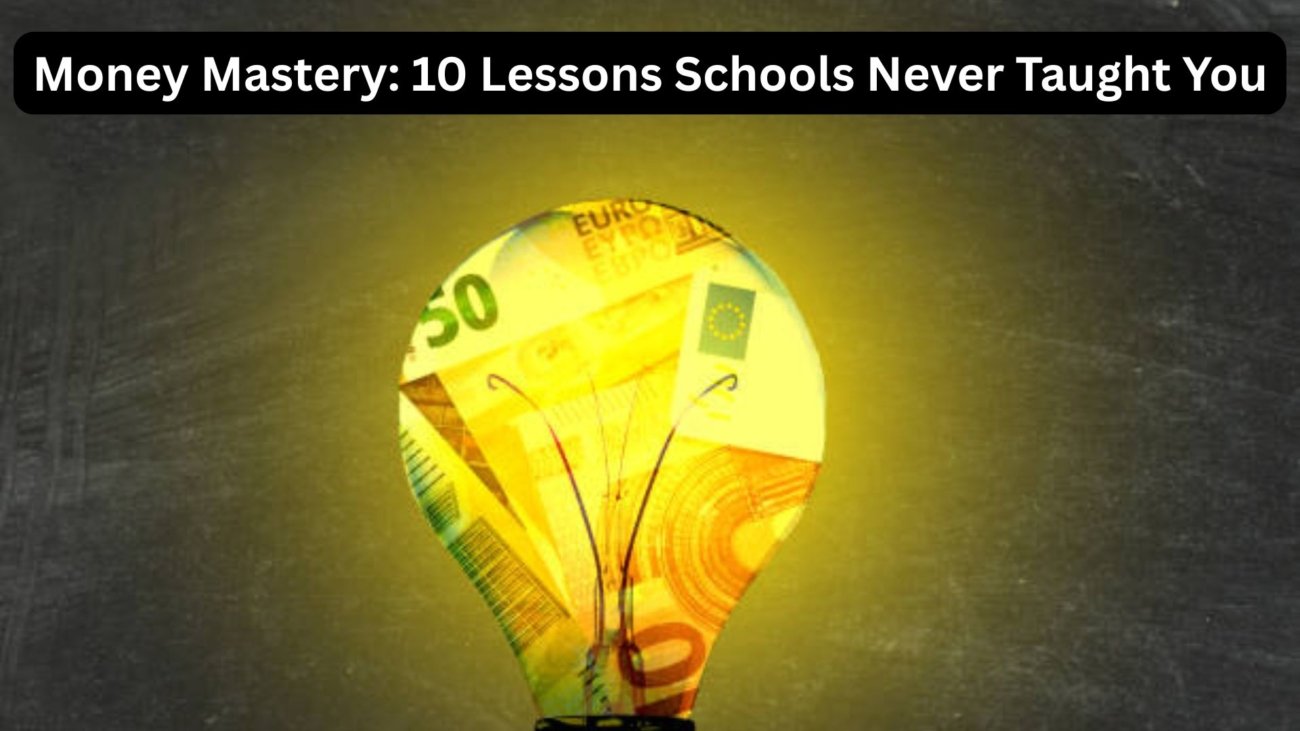
Schools teach math, science, and history — but rarely how to master money.
As a result, most people enter adulthood financially unprepared, making avoidable mistakes that cost them years of wealth-building potential.
1. Money Is a Game of Psychology, Not Just Math
Most people think wealth is about complex calculations. In reality, your mindset determines your financial success more than your income.
– Wealthy Habits: Delayed gratification, risk management, and emotional control.
– Poor Habits: Impulse spending, fear of investing, and lifestyle inflation.
Action Step: Track your money beliefs. Replace “I can’t afford this” with “How can I afford this?”
”Your net worth is a reflection of your self-worth.”
2. Income ≠ Wealth (The Millionaire Teacher Paradox)
Doctors and lawyers earn high salaries but often live paycheck to paycheck. Meanwhile, schoolteachers with modest incomes sometimes retire millionaires. The difference? Savings rate and investing discipline.
– The Rule: It’s not what you earn — it’s what you keep and grow.
– Example: A $50k earner who saves 30% will outperform a $150k earner who spends 100%.
Action Step: Aim to save at least 20% of your income — automatically.
”Rich people invest first and spend what’s left. The poor do the opposite.”
3. Debt Can Be a Tool or a Trap
Schools teach “debt is bad,” but wealthy people use strategic debt (low-interest mortgages, business loans) to build assets.
– Good Debt: Buys appreciating assets (real estate, education, business growth).
– Bad Debt: Funds liabilities (cars, vacations, credit card splurges).
Action Step: Refinance high-interest debt and avoid borrowing for depreciating items.
”Debt is like fire — useful when controlled, destructive when unchecked.”
4. The Tax Code Is the Wealthy’s Secret Weapon
Most people overpay taxes because they don’t understand deductions, credits, and legal loopholes.
– Tax-Advantaged Accounts: Max out 401(k), IRA, HSA.
– Business Deductions: Write off home offices, travel, and education.
Action Step: Hire a tax strategist or learn basic tax optimization.
”The ignorant pay taxes. The educated plan them.”
5. Time Is More Valuable Than Money
Schools emphasize trading time for money (jobs), but the wealthy leverage time (passive income, automation, delegation).
– The Shift: Move from hourly wages to scalable income (digital products, royalties, investments).
– The Hack: Outsource tasks that don’t require your unique skills.
Action Step: Identify one income stream that doesn’t trade time for dollars.
”Minimum time, maximum output — that’s the wealth formula.”
6. The Best Investment Is Yourself
Warren Buffett reads 5 hours daily. Elon Musk taught himself rocket science. Self-education compounds.
– Learn High-Income Skills: Coding, sales, copywriting, AI.
– Invest in Mentorship: Pay experts to shortcut your learning curve.
Action Step: Dedicate 1 hour daily to financial education.
”Skills pay the bills — but mastery builds empires.”
7. Networking Is the Invisible Bank Account
Your network determines your net worth. The wealthy access deals, partnerships, and opportunities through relationships.
– Give First: Offer value before asking for help.
– Strategic Circles: Join masterminds, industry groups, and alumni networks.
Action Step: Reach out to one high-value contact weekly.
”Your income is the average of your five closest friends.”
8. Risk Is Inevitable — Poverty Is the Real Risk
Most people avoid investing out of fear. But inflation and stagnant savings guarantee financial decline.
– Smart Risk: Index funds, real estate, and side businesses.
– Dumb Risk: Lottery tickets, meme stocks, and get-rich-quick schemes.
Action Step: Start investing — even $100/month in an S&P 500 index fund.
”Playing it safe is the riskiest move of all.”
9. Money Loves Speed (Execution Beats Perfection)
Schools reward careful planning. The real world rewards fast action and adaptation.
– Launch Fast: Start a side hustle before it’s “perfect.”
– Fail Forward: Every mistake is tuition for success.
Action Step: Pick one idea and execute within 7 days.
”Done is better than perfect — wealth favors the bold.”
10. Wealth Is a Byproduct of Service
The richest people solve the biggest problems (Jobs = smartphones, Bezos = e-commerce).
– Find a Pain Point: What frustrates people in your industry?
– Monetize Solutions: Products, services, or content that help.
Action Step: Identify one problem you can solve profitably.
”Money flows where value goes.”


Puraburn I truly appreciate your technique of writing a blog. I added it to my bookmark site list and will